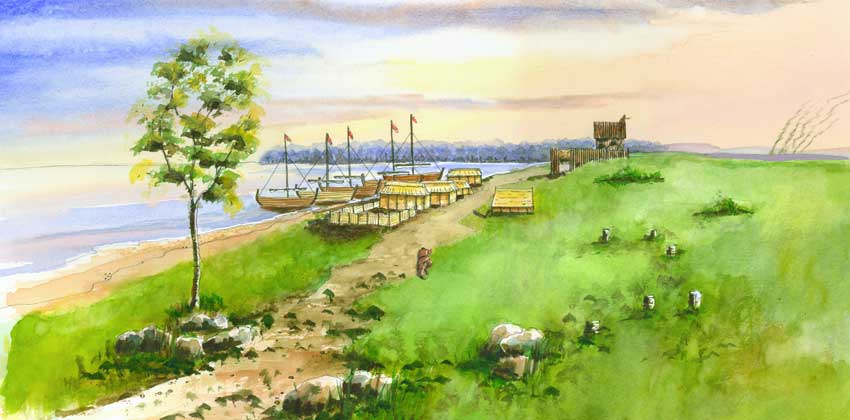Macbeth’s world was a Celtic one, in which ideas of kindred, family and household were fundamental and social mobility was slight. There was a social order based on relationships between people rather on the land-holding hierarchy of duties and obligations that was the basis of feudalism throughout much of later medieval Europe.
Moray’s Mormaer
The most important person in 11th century Moray was the Mormaer himself, who would have lived with an extended family and household comprising, among others, poets and cleric/administrators. The role of Mormaer may have been a royal appointment in origin, but by Macbeth’s time the Mormaer was largely independent, perhaps a sub-King. Certainly Macbeth as Mormaer was the most important and powerful man in the Province of Moray.
Evidence from sculpture suggests that leaders such as Macbeth spent much of their time fighting, hunting or praying but sculpture is unlikely to celebrate their more mundane activities such as dispensing justice and directing the administration of the Province.
On the move
Macbeth’s household would have moved around Moray rather than staying in one place. He would have had a number of fortified farmsteads, probably including ones in hill-forts at Inverness and Forres and perhaps near Pitgaveny close to Elgin. By moving from place to place the Mormaer could make himself visible and accessible, and collect tribute/rent in person.






